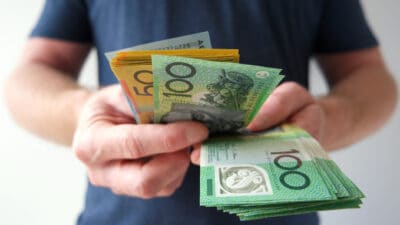Investing in the financial markets is no doubt as much an art as it is a science, as with all skilful practices.
That's an important distinction, because there's a relationship between art and emotion, provides George Mather in The Psychology of Visual Art.
However, it's also important to realise that successful investing is as systematic and science-based as it gets, especially in today's data-driven world.
Such that computers, algorithms, machine learning, proprietary high-frequency trading bots and the like have swarmed over financial markets in the past decade. Not to mention the rise of quantitative finance in recent years as well that's seen some of the largest hedge funds ever roll out onto the scene.
According to Mordor Intelligence, "algorithmic trading accounts for around 60-73% of the overall US equity trading", and "the algorithmic trading market is expected to witness a [compound annual growth rate] CAGR of 10.5%" through until 2027.
Why the shift?
Much of the overhaul in the way financial markets operate revolves around the fact that algorithmic and quantitative trading methods supposedly back out the emotion involved with investing. Investigations by The Socio-Economic Review found that 'algo's' are "allegedly more rational and efficient than human traders, and less prone to emotionally motivated decisions", to hammer in that point.
Behavioural finance tells us that humans are notoriously bad forecasters, are bad at mental accounting, suffer from cognitive and emotional biases, and are fraught with logical errors in decision making. It's just the way we are.
For example, most investors are deemed to be loss averse, rather than being solely risk averse. What that means is, that they value a loss greater than they value a win.
Consider this – numerous studies find that "a 50% chance of losing $100 must be offset by a 50% chance of gaining $200" – in other words, the upside must be twice that of the potential loss for most people to get comfy.
If it remains a 50/50 chance, the bet is often deemed to be too risky (because many aren't strong at mental accounting either, remember?). The potential for a win is valued lower than the potential for an equal sized loss.
Fundamentally, these form the bedrocks as to why there's been a structural shift towards the new electronic market 'participant' – to mitigate the risk of human error. As Oscar Wilde Said, "I don't want to be at the mercy of my emotions. I want to use them, to enjoy them, and to dominate them". Presumably, most market pundits would feel the same way.
Controlling emotion is actually so important, that some say harnessing the market's psychology is essential in understanding price action and profiting from this.
"The swings we see in investment markets are far greater than can be justified by movements in investment fundamentals alone – i.e. profits, dividends, rents, interest rates, etc," Shane Oliver of AMP Capital told Livewire.
"In fact, investor emotion plays a huge part," he added.
Oliver also said:
A bull market runs through optimism, excitement, thrill and ultimately euphoria by which point the asset class is over loved (and usually overvalued too) – everyone who is going to buy has – and it becomes vulnerable to bad news. This is the point of maximum risk.
Once the cycle starts to turn down in a bear market, euphoria gives way to anxiety, denial, fear, capitulation and ultimately depression at which point the asset class is under loved (and usually undervalued) – everyone who is going to sell has – and it becomes susceptible to good (or less bad) news. This is the point of maximum opportunity.
Dampen that emotion
"Key message: investor emotion plays a huge roll in amplifying the investment cycle," Oliver also remarked, adding that investors should avoid assets where the crowd is "euphoric and convinced it's a sure thing".
What to do, Oliver says?
"[F]avour assets where the crowd is depressed and the asset is under loved".
That, he posits, is obviously far easier than done, hence why the market has taken such a shine to systematic and data-based investing methods in the first place.
Instead, focus on the long-term – which, unsurprisingly according to this data, has shown to be "solid and relatively smooth," Oliver says – and recognise that investment returns are a function of time as much as anything.
"Since 1900 for Australian shares roughly two years out of ten have had negative returns but there are no negative returns over rolling 20-year periods. (It's roughly two & a half years out of 10 for US shares since 1900.)," Oliver commented.
Not to mention that, amidst several global recessions, a number of wars, housing crises, Russian debt default, the GFC, and most recently, COVID-19 (just to name a small few), the S&P/ASX 200 Index (ASX: XJO) has still climbed from 1,487 in 1992 to 7,442 at the close of trade on Thursday, a 400% return.
That's worth thinking about.









